Celebrating the important role of buses in the past and the future
and live on Freeview channel 276
As the country celebrated the monarch’s 70-year reign recently, it was a time when all of us could reflect on the importance of community to our country.
But what many of us take for granted is that the humble bus is in so many ways the glue that holds those communities together.
Advertisement
Hide AdAdvertisement
Hide AdFrom the post-war era of rebuilding and renewal to the more recent steps in the recovery from the pandemic, buses have been pivotal to our country over the past 70 years: connecting people with jobs, education and skills, retail, and leisure. And, most importantly, bringing friends and family together.
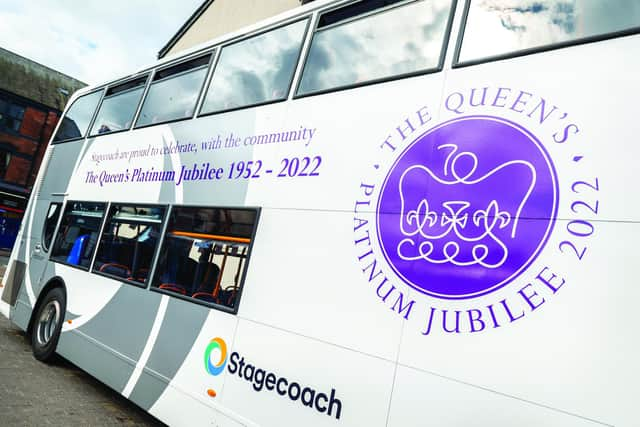

Stagecoach has a strong heritage over more than four decades, proud to serve Britain as the country’s biggest bus and coach operator.
But nearly three decades before that, as Queen Elizabeth II took the throne in 1952 immediately after the death of her father, King George VI, buses were central to how Britain lived.
Before the rise of the car, the bus was the country’s number one choice of transport, used significantly more than trams and light rail systems.
Advertisement
Hide AdAdvertisement
Hide AdIt was a golden age of bus travel, with 13.2 million journeys a year at its peak in 1955.
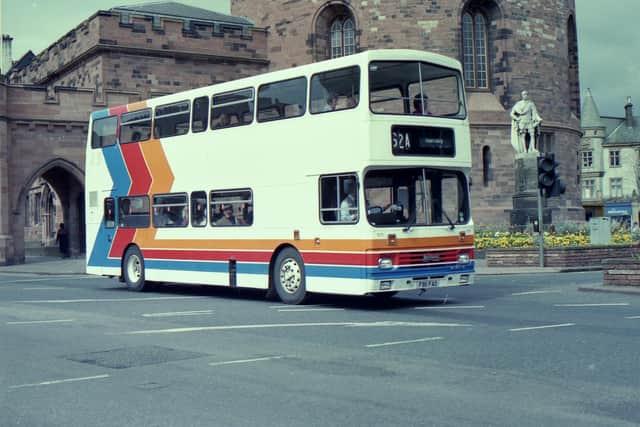

The expansion of cars dramatically reduced the number of bus journeys in the following three decades.
But the years since then have seen major progress in the quality of bus travel, huge investment in new technology, as well as innovation and new types of services.
Stagecoach Cumbria & North Lancashire operates both local and regional bus services in Cumbria, Lancashire, Northumberland and Tyne and Wear, England, as well as Dumfries and Galloway, Scotland.
Advertisement
Hide AdAdvertisement
Hide AdIt is a subsidiary of the Stagecoach Group, which operates bus, coach, rail and tram services across the United Kingdom.
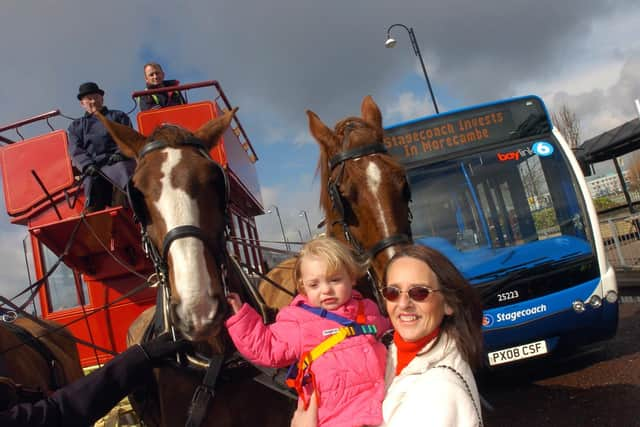

The company has its origins in the purchase of Cumberland Motor Services and Ribble Motor Services from the National Bus Company in the late 1980s.
The company's head office is based in Carlisle.
It was previously known as Stagecoach North West until September 1 2011, when Stagecoach Merseyside amalgamated with Chorley and Preston depots to form Stagecoach Merseyside & South Lancashire.
Stagecoach in Lancaster operates services in and around the towns of Lancaster and Morecambe.
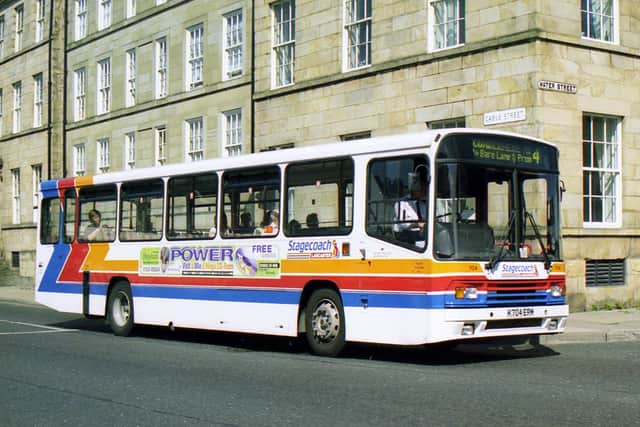

Advertisement
Hide AdAdvertisement
Hide AdIt is the trading name of Stagecoach North West Limited, and consists of the former Stagecoach Ribble services, as well as those formerly operated by Lancaster City Transport – a municipal bus operator which ceased trading in 1993.
The 1990s saw the introduction of park and ride systems to the UK’s transport landscape.
The system allowed people access to high frequency routes into city centres for work and other purposes, avoiding premium parking fees, and helping reduce city centre congestion which costs the country billions of pounds a year in reduced productivity.
New technology has also made journeys easier for our customers, and we’ve invested £1 billion in the past decade alone in state-of-the-art greener vehicles to help improve our environment and local air quality.
Advertisement
Hide AdAdvertisement
Hide AdAs the country’s trailblazer public transport start-up in 1980, we’re proud to have been at the forefront of many cutting-edge developments.
Paying cash to a clippy was the only way to get a bus ticket in the 1950s, but in 2022 passengers can use their contactless bank card or smartphone to pay for their travel – as well as securing it in advance.
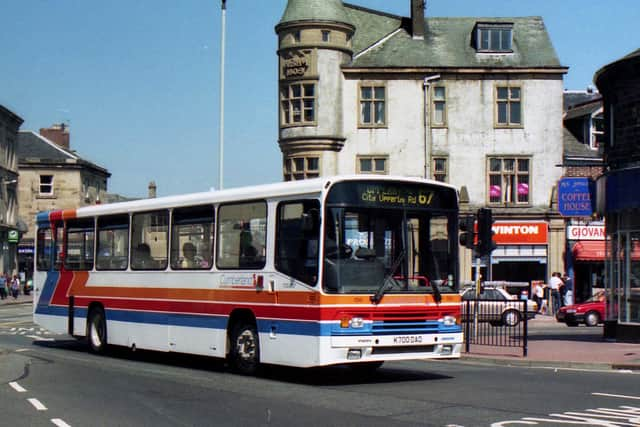

Our Stagecoach app provides live running information on the progress of our services, so customers don’t need to worry about checking a timetable at a bus stop.
And we’re investing in software that uses data and artificial intelligence to deliver better timetables, more effectively manage our workforce and improve the way we maintain our fleet.
Advertisement
Hide AdAdvertisement
Hide AdLooking ahead there is a bright and strong future for the bus building on the success of the past 70 years.
Buses are critical to helping economic recovery following the pandemic, levelling up our communities, and delivering net zero carbon emissions. I'm confident that we will see a new golden age of bus travel with buses being even more relevant and important in 2050 than they were in 1950.
Across England, Scotland, and Wales, we are proud to be working with local government on exciting plans to help the country get out of their cars and back on-board Britain’s buses.
A package of initiatives are helping to deliver lower fares, faster and more reliable journeys, better connections, and improved customer information.
Advertisement
Hide AdAdvertisement
Hide AdTo maximise the potential of the country’s bus networks, it’s critical that all regions – urban and rural – benefit from government investment.
We also need incentives to help people make more sustainable transport choices.
Tax breaks through salary sacrifice schemes for people who buy bus season tickets could help address the cost-of-living crisis.
Our environment could also benefit from a system of mobility credits to encourage people to give up older polluting cars and reward them with a credit to spend on greener travel options.
Advertisement
Hide AdAdvertisement
Hide AdThe prize of making even small changes is huge, but simply replacing petrol or diesel car trips with electric car trips won’t be enough to deliver the country’s net zero targets or be enough to stop damaging climate change.
We need real change.
If everyone switched just one car journey a month to bus, there would be a billion fewer car journeys and a saving of two million tonnes of carbon dioxide.
Following the Platinum Jubilee celebrations across the nation and the wider Commonwealth, we should take the opportunity of this milestone to pledge to make changes in how we travel for the benefit of our own and future generations.